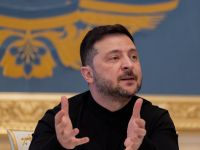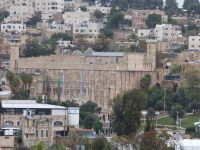Asian and European leaders ended a two-day summit Saturday by claiming major progress in bringing the two continents together despite differences over getting closer to North Korea.
President Kim Dae-Jung of host South Korea hailed the third Asia-Europe Meeting (ASEM) as a "major step forward" for the two regions.
"Over the past two days, Asia and Europe have made a major step forward in their march to forge a genuine partnership for prosperity and stability in the new millennium," he told assembled leaders.
The summit was dominated by North Korea, but even as the 25 ASEM nations and the European Commission released a unanimous declaration to work for peace on the Korean peninsula, differences remained.
During the summit, Britain, Germany and Spain declared their intention to seek diplomatic ties with Pyongyang.
But French President Jacques Chirac said that while his country fully supported reconciliation, it would not join the rush to establish formal links.
"France will establish a diplomatic relationship only if North Korea makes gestures in its desire to answer our expectations on non-proliferation and human rights," he told an end-of-summit press conference.
Japanese Prime Minister Yoshiro Mori had earlier stressed his country -- still concerned by the communist state's missile program among other issues -- would "take time" before seeking ties.
Nonetheless the ASEM summit unanimously adopted the Seoul Declaration for Peace on the Korean Peninsula, a commitment to further reduce tensions along the divided frontier.
This, too, revealed further divides, with a reference to the North's suspected weapons of mass destruction left out at the insistences of China.
However compromise seemed to have been reached on the often contentious issue of human rights, with references to it in official statements tempered by pledges not to interfere in members' internal matters.
The Chairman's Statement, by President Kim Dae-Jung, included for the first time human rights as a common value for the four-year-old organization.
"Leaders committed themselves to promote and protect all human rights including the right to development and fundamental freedoms, bearing in mind their universal indivisible and interdependent character," the statement issued at the end of the two-day ASEM meeting said.
However a document on ASEM's future said political discussion should take place only on the basis of "non-intervention, whether direct or indirect, in each other's internal affairs."
The summit, which brought together more than 20 heads of government and state from 10 Asian and 15 European countries, adopted a series of other measures Saturday.
These included a major information technology initiative, the "Trans-Eurasia Information Network," and policies concerning fighting trans-national crimes such as money laundering and people trafficking.
But with 16 separate measures passed and seven more "noted", diplomats said future summits would take a more focused approach to meet concerns that ASEM's work was being too thinly spread.
Organizers were grateful, however, that the summit was so little disrupted by the violent clashes between protesters and police of the sort which dogged recent international trade conferences in Seattle and Prague.
In all, only six police officers and two protesters were slightly hurt in battles during a protest attended by thousands of people in Seoul Friday, police said. A larger demonstration passed off without violence.
Police, who had sealed off the COEX conference center with thousands of riot police, credited tactics such as using female police officers on the front lines for reducing tensions.
The next ASEM summit is in Denmark in two years -- SEOUL (AFP)
© 2000 Al Bawaba (www.albawaba.com)







